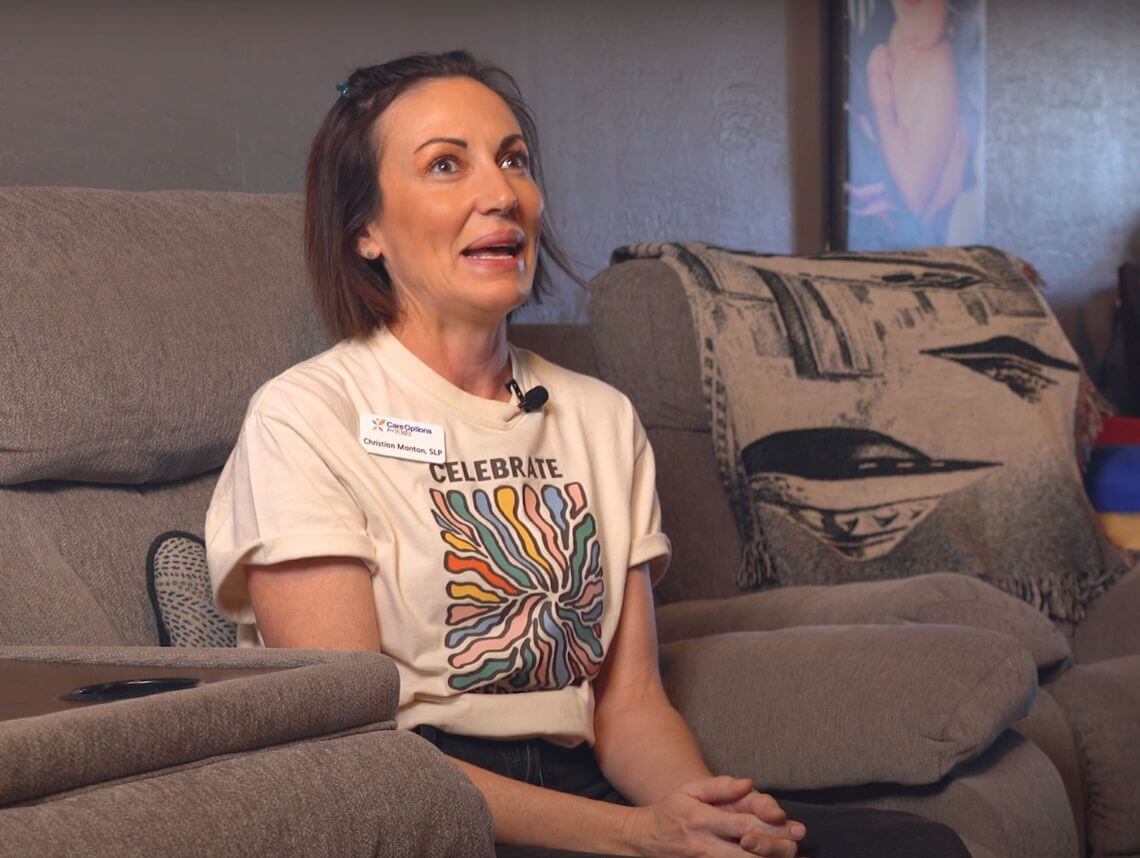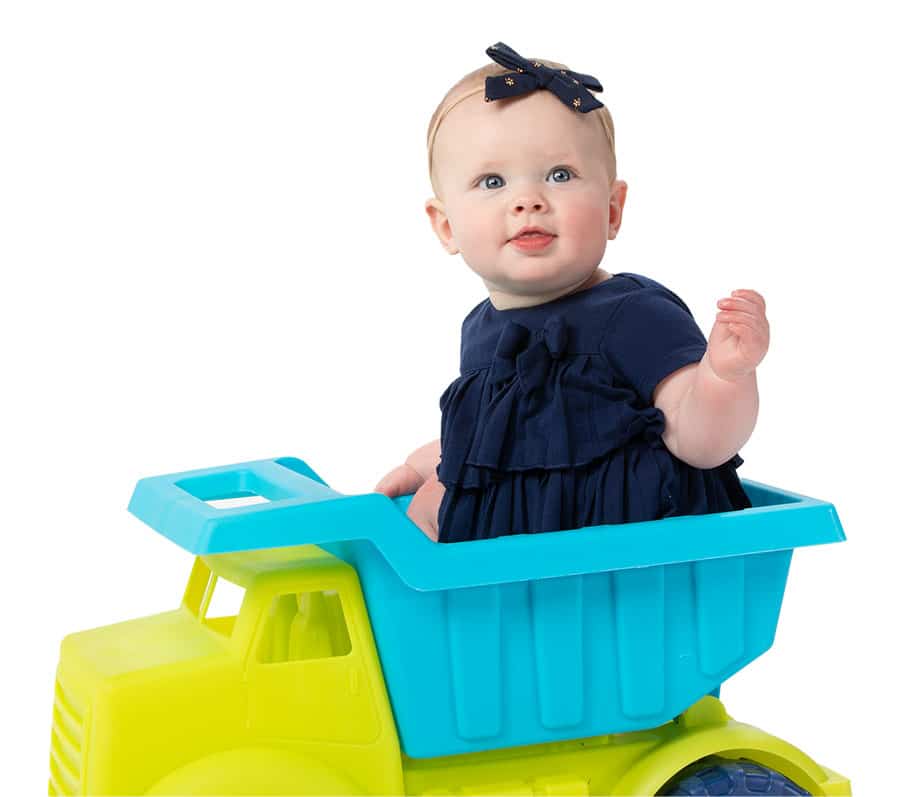Solace Blog
- Activities19
- Autism & Behavioral4
- Community154
- Early Intervention71
- Events & Giving Back20
- Extraordinary Kids22
- Family Caregiver4
- Home Care Therapy60
- News94
- Parent Articles83
- Patient Testimonial21
- Pediatric Therapy77
- Pediatric Therapy Career46
- Private Duty Nursing1
- School-Based Services1
- Telehealth Therapy27
- Tips & Advice66
Summer Reading List: Books to Inspire Therapist Growth
Cooling Off with Aquatic Therapy: Benefits and Best Practices
Sensory Activities For Kids

From School To Home: Christian’s Shift To Impactful Therapy
Speak, Listen, Connect: 6 Communication Strategies for Therapists

Speech and Language Disorders Common in Children, But Families Often Don’t Know the Early Signs
As the nation recognizes Better Hearing and Speech Month this May, Jennie L., speech-language pathologist at Solace Pediatric Healthcare, encourages families to learn the signs of communication disorders.
Eleven percent of children 3–6 years of age experience a voice, speech, language, or swallowing disorder. Yet, many families do not know the early signs to look for—a factor that can result in delayed care.
Among children and young adults 6–21 years of age, speech and language disorders are one of the most common disabilities for which students receive special education services in schools through the Individuals With Disabilities Education Act. Unaddressed speech and language disorders can affect a child’s success academically and socially.
“If families are worried about their child’s communication skills, speech-language pathologists can provide life-changing intervention that can help children develop and thrive in school and life,” said Jennie L.
New data from the American Speech-Language-Hearing Association (ASHA) show that lack of awareness about the signs of communication disorders is the leading factor that prevents families from taking action on these disorders in young children, according to speech-language pathologists nationwide.
“It’s so important that parents and caregivers know the warning signs and are aware of the benefits of timely intervention,” added Jennie L. “Many communication disorders can be reversed or even prevented. While working with a speech-language pathologist can benefit a child at any age, intervention and treatment services often take less time and are most effective if they happen when the signs of a disorder first appear.”
Jennie shares some of the common signs of these disorders below:
Signs of a Speech Sound Disorder
- Says p, b, m, h, and w incorrectly in words (2–3 years)
- Says k, g, f, t, d, and n incorrectly in words (3–4 years)
- Produces speech that is unclear, even to familiar people (2–3 years)
Signs of a Language Disorder
- Does not smile or interact with others (birth and older)
- Does not babble (4–6 months)
- Makes only a few sounds or gestures, like reaching (7–9 months)
- Does not understand what others say (10 months – 2 years)
- Says only a few words (19 months – 2 years)
- Does not put words together to make sentences (19 months – 3 years)
- Speaks using words that are not easily understood by others (3–4 years)
- Has trouble with early reading skills, like pretending to read or finding the front of a book (4–5 years)
Signs of Stuttering (Disfluency)
- Repeats the first sounds of words—“b-b-b-ball” for “ball”
- Stretches sounds out—“ffffff-farm” for “farm”
- Shows frustration when trying to get words out
Signs of a Voice Disorder
- Loss of voice
- Uses a hoarse or breathy voice
- Speaks with strain and effort
How to Refer Your Child
Solace Pediatric Healthcare is the leading provider of family caregiver, occupational, physical, speech and feeding therapy services. Since 2005, our clinicians have provided pediatric care to children from birth to 21 years of age. We offer comprehensive pediatric therapy services in Colorado and Arizona.
At Solace, we’ve instilled a culture built on trust, communication, teamwork and accountability. Our mission is to provide pediatric clinical services to help children and families live their best lives.
- I want to refer my child for an Evaluation/Therapy. If you know you would like to speak to our patient advocate to discuss scheduling an initial evaluation with a licensed pediatric therapist, simply complete and submit the Referral Form so we may contact you. Please provide as much information on the secure/encrypted form as possible as it is required to begin the process. We do accept Medicaid and most insurances.
- I Want to Be Contacted. If you would like to speak with our patient advocate for more information prior to submitting a Referral Form, simply complete the Contact Me Form and submit.
- If you prefer to contact us to discuss your child, please call our team. You can reach us by phone at: (Denver) 303.432.8487; (Colorado Springs) 719.623.5463; (Northern Colorado) 970.775.8476; and (Pueblo) 719.695.4535.
Share this Post